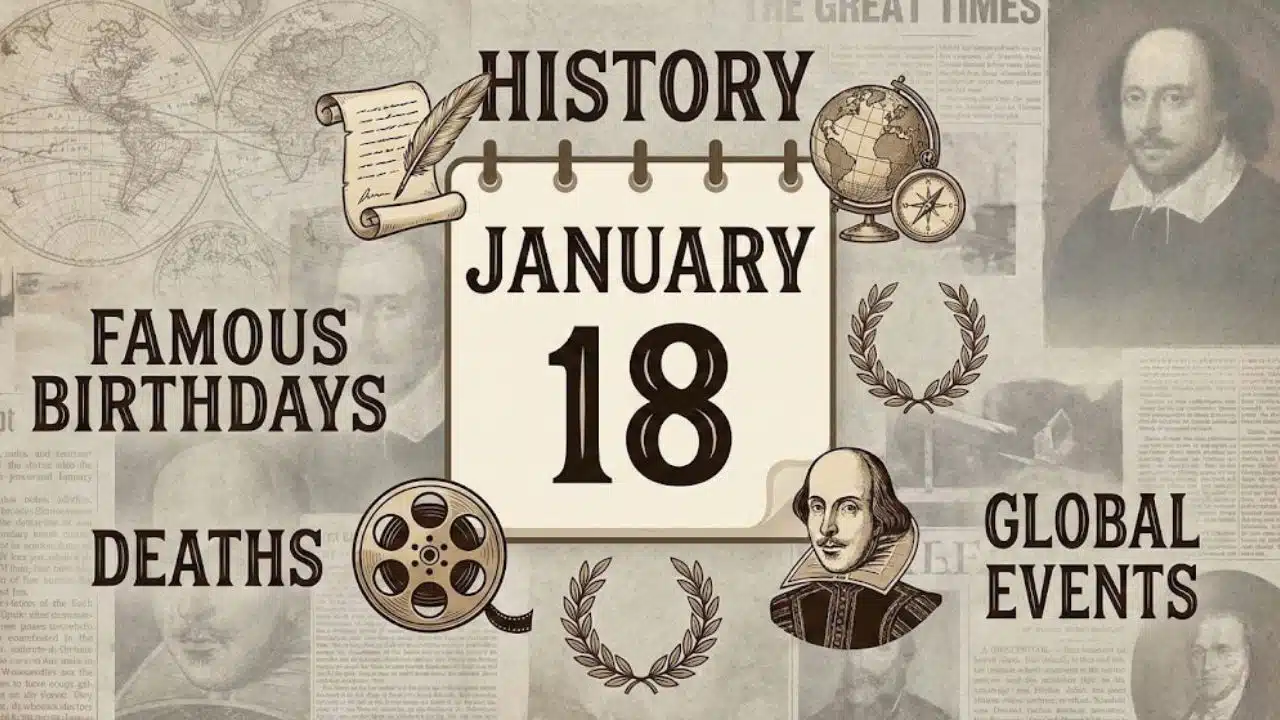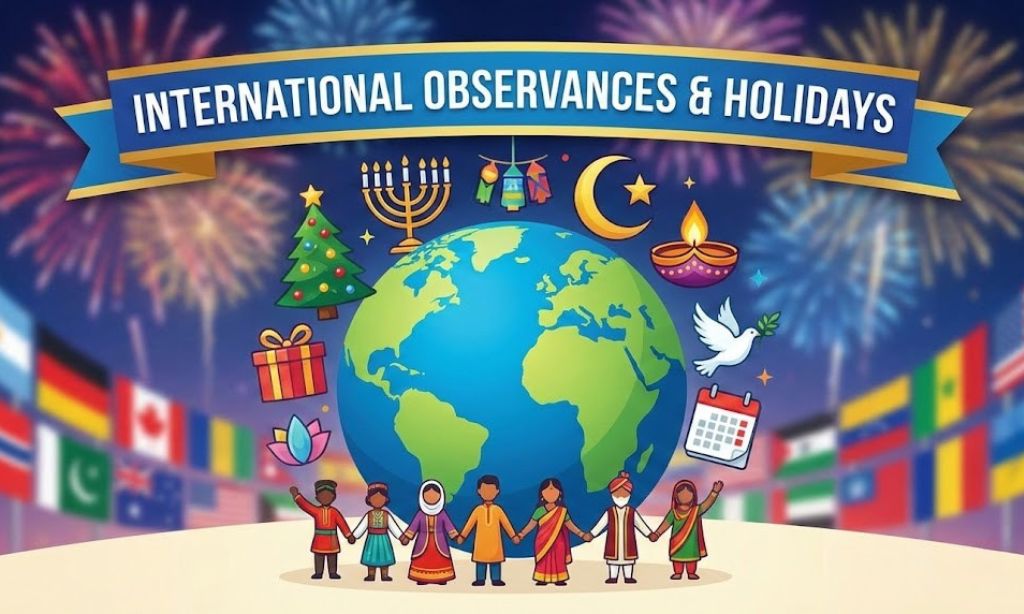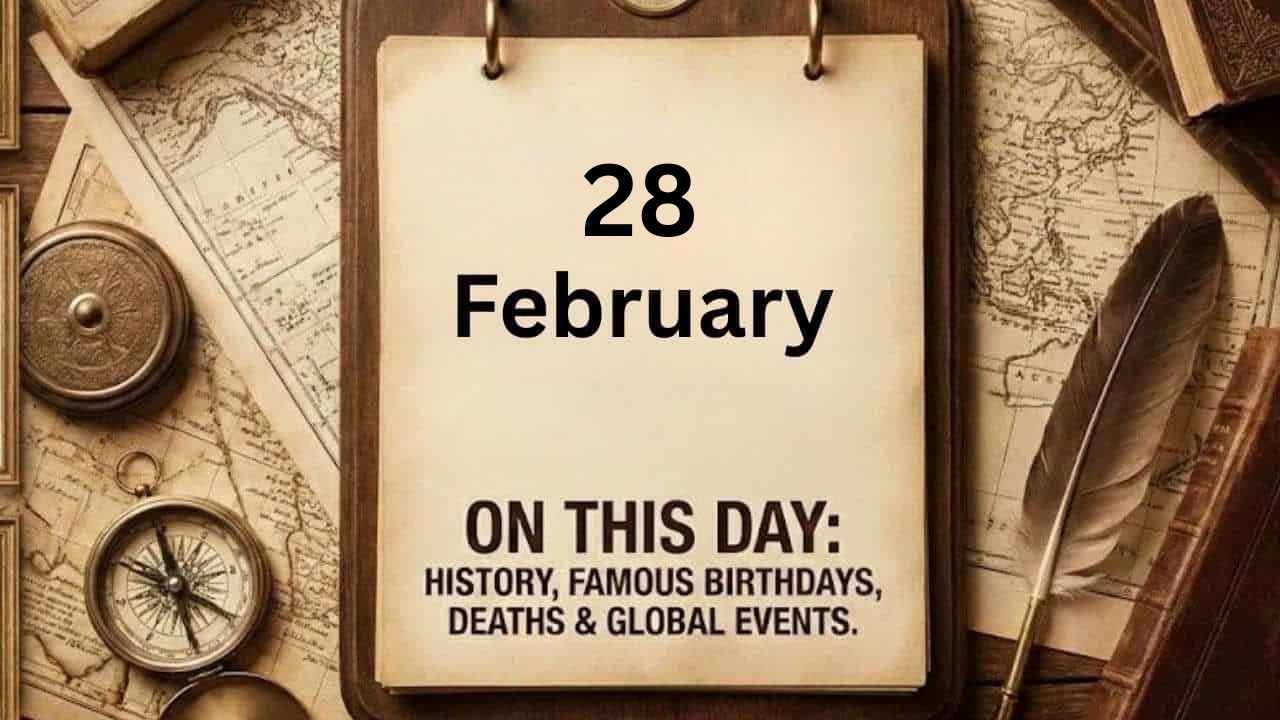Some dates feel like a scrapbook page—full of unrelated clippings. January 18 isn’t one of those. When you line up its biggest moments, a pattern emerges: January 18 often marks the moment an idea becomes a system.
Sometimes that system is political, like the proclamation of a new empire in Europe or the start of a peace conference meant to redesign the world after war. Sometimes it’s technological, like the early proof that planes could land on ships—an innovation that would eventually reshape global power and warfare. Sometimes it’s cultural and human, like children’s stories that become universal comfort, or language tools that change how people think and write.
This date also carries meaning in South Asia through reformist thought and legal legacy—reminders that some of the most lasting “events” are not battles, but slow shifts in law, education, and social conscience.
Major January 18 Milestones
| Year | Region | Event | Why It Still Matters Today |
|---|---|---|---|
| 1778 | Pacific | Captain James Cook reaches Hawaiʻi | “Contact history” that reshaped the Pacific world |
| 1871 | Europe | German Empire proclaimed at Versailles | Nationalism and state-building reshaped Europe’s future |
| 1911 | United States | First aircraft landing on a ship (Eugene Ely) | Foundation for naval aviation and aircraft carriers |
| 1919 | Europe | Paris Peace Conference opens | Modern borders and international systems take shape |
| 1977 | Global public health | Legionella identified as cause of Legionnaires’ disease | Modern outbreak investigation becomes a model |
| 2005 | Europe / Global aviation | Airbus A380 unveiled | Big bets on travel economics and technology |
| 2026 (movable) | Global | World Religion Day (3rd Sunday of January) | Interfaith dialogue and pluralism |
The Bangalee Sphere
Historical Events
South Asia’s Reform Tradition: The Long Road To Modern Rights
January 18 is not a headline date for Bangladesh’s Language Movement or the Liberation War in the way February 21 or December 16 are. But it does connect strongly to a different kind of South Asian history: the reformist tradition, where law, education, and social debate gradually changed everyday life.
Mahadev Govind Ranade (Born January 18, 1842) — Reform As Strategy
Ranade was a judge, scholar, and social reformer who belonged to the 19th-century current of Indian thinkers trying to modernize society without losing moral seriousness. His life is tied to debates that still echo across the subcontinent: women’s rights, child marriage, education, economic development, and how to negotiate reform within a colonial context.
Why it matters today: Ranade represents an enduring South Asian tension—change by persuasion and law versus change by confrontation. Even today, many of the region’s most sensitive debates—gender justice, family law, economic inequality—still revolve around the question he lived with: how do you modernize without dehumanizing?
Justice J. S. Verma (Born January 18, 1933) — Law As Public Conscience
Justice J. S. Verma later became Chief Justice of India and remains a major figure in the modern story of Indian constitutional values, judicial credibility, and rights-based thinking. His name is also strongly associated with reform conversations that arose in the wake of national trauma and public demand for legal change.
Why it matters today: South Asia’s democratic future depends heavily on whether citizens trust institutions. Verma’s legacy shows how a judge can become more than a legal technician—he can become a symbol of whether the state listens when society demands justice.
A Cultural Note For Bangladesh And West Bengal
For the Bangalee sphere, January 18 often sits inside the broad winter cultural season—books, gatherings, and public discussions flourish in cooler weather. Even when the calendar doesn’t mark a specific “Bengali-only” festival on this date every year, the season functions like a cultural platform: people meet, talk, exchange ideas, and keep traditions alive in small ways.
Famous Births (Bangalee Sphere)
| Name | Year | Region | Why They’re Notable |
|---|---|---|---|
| Mahadev Govind Ranade | 1842 | India | Judge and reform thinker; social modernization debates |
| Justice J. S. Verma | 1933 | India | Prominent jurist; constitutional and rights legacy |
| Vinod Kambli | 1972 | India | International cricketer; notable 1990s batting talent |
Famous Deaths (Bangalee Sphere)
| Name | Year | Region | Legacy |
|---|---|---|---|
| Saadat Hasan Manto | 1955 | Subcontinent | Partition-era short-story master; fierce realism and empathy |
Accuracy note: For some 20th-century literary figures, dates can appear differently across fast-reference lists. Manto’s death date is widely recorded as January 18, 1955 in mainstream biographical summaries, but scholarly editions sometimes discuss date-reporting inconsistencies. When publishing, it’s best to keep wording factual and avoid over-specific claims that aren’t universally footnoted.
Cultural/Festivals (Bangalee Sphere)
January 18 often falls in the “afterglow window” of mid-January harvest festivals across South Asia. Even when the major ritual day is January 14 or 15, family visits, community feasts, and seasonal fairs commonly extend into the following weekend—especially when people plan gatherings around work schedules.
International Observances & Holidays
Major International Days
World Religion Day (Movable, Third Sunday In January)
World Religion Day is observed on the third Sunday of January, which means in some years it lands on January 18 (including 2026). The day emphasizes interfaith understanding and the idea that religion can be a bridge rather than a boundary.
Why it matters today: Across continents, societies are becoming more diverse at the neighborhood level. Interfaith literacy—knowing how others practice and what they value—is now a practical civic skill, not an abstract ideal.
Interesting Global Observances (Popular, Not Always Official)
Winnie-the-Pooh Day (A. A. Milne’s Birthday)
A. A. Milne, the author associated with Winnie-the-Pooh, was born on January 18. The day is often celebrated informally as Winnie-the-Pooh Day.
Thesaurus Day (Roget’s Birthday)
Peter Mark Roget, whose name is tied to Roget’s Thesaurus, was born on January 18. Many language lovers mark the day as “Thesaurus Day.”
Why these matter: These are small, modern observances, but they reveal something important about culture. A society doesn’t only honor generals and politicians. It also honors imagination and language—two forces that quietly shape how people understand the world.
Global History
United States: Politics, Civil Rights, Tech Advancements
1911: The First Airplane Landing On A Ship (Eugene Ely)
On January 18, 1911, pilot Eugene Burton Ely landed an aircraft on a temporary platform on the USS Pennsylvania. It was an early, daring experiment—and one of those “proof moments” that turn science fiction into planning.
Why it matters today: Aircraft carriers became floating cities, diplomatic tools, and war machines. Carrier aviation shaped the Second World War, the Cold War, and modern deterrence. That entire trajectory rests partly on early demonstrations like Ely’s landing: the moment a risky idea became a usable method.
How to think about it culturally: This is also a story about how societies reward experimentation. When risk-taking is disciplined and supported by institutions, innovation accelerates.
Russia: Politics, Civil Rights, Tech Advancements
January 18 appears in many general historical calendars for Russia through broader European dynamics rather than a single, universally commemorated fixed-date national event. Russia’s most globally recognized “date anchors” often cluster around revolutions and major wars, while January 18 tends to be better explored through thematic history—state formation, power, and international systems.
If you want a Russia-specific January 18 version, it’s best built from museum and academic chronologies in Russian, cross-checked against neutral global references for consistency.
China: Politics, Civil Rights, Tech Advancements
Likewise, January 18’s China-related entries are more reliably built through Chinese-language historical calendars and academic sources rather than general global “on this day” lists. A China-centered January 18 can be done as a separate edition if you want deeper regional specificity.
United Kingdom: Royal Family, Parliamentary Acts, Colonial History
1778: Cook Reaches Hawaiʻi (Then Named “Sandwich Islands” By Europeans)
On January 18, 1778, Captain James Cook reached the Hawaiian Islands, marking one of the most consequential “contact moments” in Pacific history.
Why it matters today: Contact is rarely just “meeting.” It changes trade, disease ecology, political power, and cultural confidence. For Hawaiʻi, the late 18th and 19th centuries brought dramatic transformation—some chosen, some imposed. For the wider world, Hawaiʻi’s later strategic role proves how quickly a place can move from “unknown to Europeans” to central in global geopolitics.
A historian’s caution: “Discovery” language can erase the reality that these islands already had rich societies, governance, and knowledge systems. January 18 is a good day to practice careful language and respectful historical framing.
Europe: Wars, Art Movements, EU Formation
1871: The German Empire Is Proclaimed At Versailles
January 18, 1871 is famously associated with the proclamation of the German Empire in the Hall of Mirrors at Versailles. This was not only a ceremonial act. It was a statement of national power, the culmination of unification warfare, and a reshaping of Europe’s political balance.
Why it matters today: German unification altered alliances, rivalries, and the structure of modern Europe. The long chain that led to later European conflicts cannot be understood without this pivot. It is also a reminder that state-building often comes with myth-making: leaders craft narratives that bind diverse regions into a single national story.
1919: Paris Peace Conference Opens
On January 18, 1919, the Paris Peace Conference opened after World War I. It aimed to write peace, but it also wrote new tensions into the future through borders, mandates, and unequal power in negotiation.
Why it matters today: The modern international system—borders, minority questions, and the architecture of diplomacy—still carries the marks of post-WWI settlements. January 18 is a useful date to reflect on a hard truth: peace conferences don’t just end wars; they also plant the seeds of future conflicts if justice and self-determination are unevenly applied.
Australia: Commonwealth History, Indigenous Rights, Local Politics
Bushfires And The Long Story Of Fire Management
Australia’s January history is often intertwined with heat, drought, and fire risk. While specific catastrophic events are year-dependent, the broader lesson fits January 18 well: modern societies must treat climate and land management as historical forces, not background scenery.
Why it matters today: Fire is not only a natural event; it’s a political and cultural issue—how land is managed, how Indigenous fire knowledge is respected, and how communities prepare for extreme seasons.
Canada: History, Rights, Politics
Canada’s January 18 entries in common calendars are less dominated by a single national marker. Canada’s most visible “date anchors” tend to be tied to confederation, major legal shifts, and widely recognized national holidays, which aren’t fixed on January 18.
Rest Of World: Asia, Africa, South America
1977: Legionella Identified (Public Health Breakthrough)
January 18, 1977 is strongly associated with the identification of the bacterium that causes Legionnaires’ disease. It was a major moment in modern epidemiology: a mysterious outbreak became a known, preventable threat.
Why it matters today: In an era shaped by outbreaks and public health anxiety, this story is a reminder that good investigation works. Field observation, lab science, and public communication can turn panic into prevention.
2005: Airbus A380 Unveiled (The Superjumbo Era)
On January 18, 2005, Airbus unveiled the A380 in Toulouse. It was a symbol of engineering ambition and a bet on a future dominated by giant hub airports and massive passenger volume.
Why it matters today: The A380 story became a case study in how technology meets economics. Even brilliant machines must match market reality. Aviation history is full of this lesson: success is not only about what engineers can build, but about what systems—airports, routes, consumer behavior—can sustain.
Notable Births & Deaths (Global)
Famous Births (Global)
| Name | Year | Nationality | Why They’re Famous |
|---|---|---|---|
| Montesquieu | 1689 | French | Political philosopher; separation-of-powers influence |
| Peter Mark Roget | 1779 | British | Roget’s Thesaurus; language organization |
| A. A. Milne | 1882 | British | Winnie-the-Pooh author; children’s literature icon |
| Cary Grant | 1904 | British-American | Classic Hollywood actor; cultural icon |
| Kevin Costner | 1955 | American | Award-winning actor/director |
| Justice J. S. Verma | 1933 | Indian | Jurist; rights and reform legacy |
| Mahadev Govind Ranade | 1842 | Indian | Reform thinker and judge |
Famous Deaths (Global)
| Name | Year | Nationality | Cause/Legacy |
|---|---|---|---|
| Rudyard Kipling | 1936 | British (born in Bombay) | Nobel Prize-winning author; imperial-era literature debate |
| Saadat Hasan Manto | 1955 | Subcontinent | Partition stories; uncompromising realism |
| John Paul Jones (commonly recorded) | 1792 | Scottish-American | Naval hero in American Revolutionary memory |
Accuracy note: For historic figures (especially pre-19th century), death dates can vary by calendar conventions and record-keeping. When publishing, it’s wise to keep phrasing neutral (“commonly recorded as”) unless you are citing a specific archival register.
“Did You Know?” Trivia (3)
- January 18 quietly belongs to both “big power” and “small words.” One side of the date is empire-building and peace conferences. The other side is language tools and children’s stories. It’s a reminder that history isn’t only what governments do—it’s also what people read, repeat, and teach their children.
- The first aircraft-carrier era began with experiments, not certainty. Ely’s ship landing wasn’t a guaranteed success. It was an argument made with courage and engineering. That’s how many world-changing technologies begin: not as policy, but as proof.
- World Religion Day sometimes lands on January 18, making the date a modern interfaith marker. In years when it falls here, the date becomes an intentional pause for pluralism—useful in a world where misunderstanding spreads faster than empathy.
Quote Of The Day
“The less we think about others, the more we talk about ourselves.” — Montesquieu
A line like this fits January 18’s themes: empires rise when leaders forget the human cost, and peace fails when negotiators talk more about victory than people. It also fits the day’s cultural side—language and reflection as quiet forms of power.
Takeaways: What January 18 Teaches
January 18 is more than just another date on the calendar—it is a reflection of the moments, people, and events that have helped shape the course of human history. From landmark global developments and defining political or cultural milestones to the births of influential personalities who left a lasting impact on society, this day highlights the interconnected nature of our past and present.
Equally important are the lives remembered on January 18, whose contributions, sacrifices, and ideas continue to resonate long after their time. Revisiting these stories allows us to better understand how progress is built over generations and how individual actions can influence the wider world.
By exploring the history, famous birthdays, notable deaths, and global events associated with January 18, we not only honor the past but also draw inspiration for the future. Each remembrance serves as a powerful reminder that history is a living narrative—one that continues to guide, inform, and inspire generations to come.






































